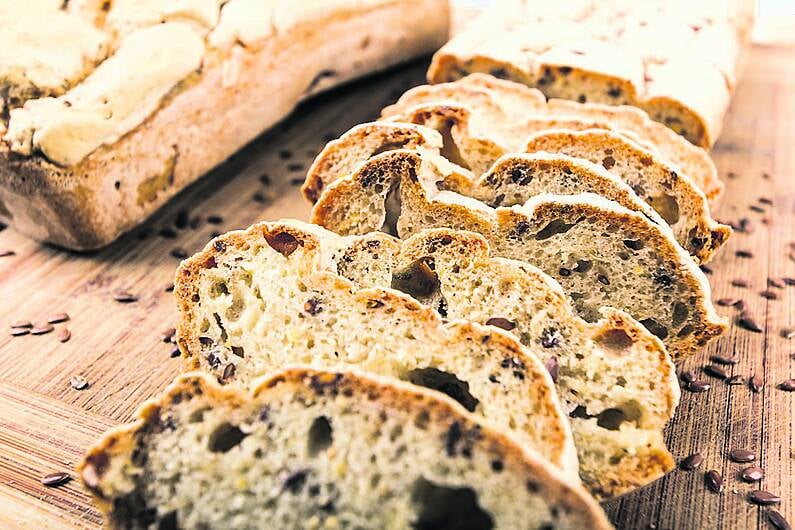Health & Nutrition with Rosie Shelley
Currently, gluten-free food is outselling all other diet options. 60% of people purchase or consume gluten-free products ... as much as 13% of the population believe it disagrees with them.                    – Professor David Sanders, Consultant Gastroenterologist.
Food writer used to be such a fun-sounding job, full of delight and indulgence, but in the last decade it has become more of a minefield than politics.             – Sophie White
OF all the debates that populate the ever-evolving field of nutritional science, one of the most complex concerns wheat, or more specifically gluten, the protein that wheat, barley and rye contains. Led by multiple celebrities and a few celebrity food writers, thousands of us are giving up gluten. Not because we have coeliac disease but as a kind of lifestyle choice, and in the belief that it will make us slimmer, more energetic and clear thinking.
But could there be some truth in this, at least for some of us? While coeliac disease (CD) is said to affect about one percent of the population – though as we'll see it's likely that it's hugely underdiagnosed – up to 13% are thought to be intolerant, or sensitive to the protein. The two conditions are very different. CD can be picked up by a blood test, it's a definitive diagnosis, and people who have it absolutely must avoid all gluten, usually for the rest of their lives.
There is no reliable test for gluten intolerance, so the only route is to try cutting it out and see if your symptoms are relieved. And given the really surprising array of foods and drinks that contain it, this is easier said than done.
Professor Sanders, who has published a book called ‘Gluten Attack', has conducted research after finding that many of his non-coeliac patients complained of gastrointestinal issues, and sluggishness, after eating gluten, and he believes that many of us are in fact intolerant.Â
He found that the immune response is different to that in those with CD, but that it is an immune response all the same. But, he says, ‘I don't believe – yet – there is a need for everyone to go gluten-free. If you think it gives you symptoms, please visit a doctor.'
Some studies have suggested that gluten can have an effect on both our brains and our guts. In 2015, for example, scientists at Aberdeen University found that non-coeliacs avoiding gluten had less fatigue, better concentration, and less bloating. And there are swathes of anecdotal evidence of soaring energy levels and shrinking waistlines.Â
But of course if you cut out bread, pasta, pies and cakes and beer, you're going to lose weight, and there may be several things in play here. Firstly, and to me most importantly, the sheer volume of wheat that the Western diet features is astonishing. It's not unusual for people to have cereal for breakfast, a sandwich for lunch, and pasta for dinner, and eating anything to such excess is likely to trigger a reaction. Secondly, in the scheme of things wheat is a fairly new addition to our diets that our bodies may not have learnt to properly digest. And thirdly and at any rate, the form of wheat that we cultivate now, to produce larger and hardier crops, is quite alien to its original state. On top of that, high-speed industrial bread-making processes increase the gluten content. On top of that again, the products may contain other common irritants such as soya protein and of course yeast.
A real problem, many experts feel, is that going gluten-free as a lifestyle choice is feeding into (or out of) the growing obsession with so called ‘clean eating' and the incidence of orthorexia, which has become almost a socio-political issue, a socially acceptable – desirable even – fixation on cutting out whole food groups for ‘health reasons'.Â
As the well-known food writer Sophie White comments, food is ‘either “super†or it's refined Satan and nothing in between.'
Others worry that there is a risk of losing out on essential fibre and nutrients, though this has in fact been refuted by several studies and I have to say there's nothing you find in wheat that you can't find elsewhere. In May, a major study from Harvard concluded that people avoiding gluten tended to eat fewer wholegrains of any kind (I suspect that this is more to do with the low carb for weight loss way of eating than gluten intolerance), and that this ‘may affect cardiovascular risk.' Another Harvard study found a link between gluten free diets and the risk of type 2 diabetes. Also in May, researchers showed that eating more fibre can dramatically increase lifespan, but again, there are many more sources of fibre than wheat.
The concern is that people often replace wheat products with more artificial, processed versions full of sugars and binders and so on – the latest research has shown that this is why many are unable to lose weight – or versions made from rice flour, which naturally contains quite high levels of heavy metals and shouldn't be the mainstay of any diet. In March two major US studies found that those choosing processed gluten-free products have twice the normal level of arsenic in their blood, 70% more mercury, and higher levels of lead and cadmium.
In the end, if you feel bad after eating wheat/gluten, then you really should see your GP – don't just stop eating it because it will need to be in your system if you're to be tested.Â
If there is no CD diagnosis but you still feel bloated, tired and so on then you might think about eating a wider variety of grains – there are several options that are more nutritious anyway – or more vegetables for your fibre, minerals and vitamins. Otherwise, I would always look for real, locally-made bread, especially traditional forms like soda or sourdough, and enjoy them. As Sophie White concludes, ‘I think we can all agree that extremes of anything is the problem.'  Â







